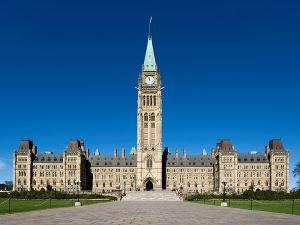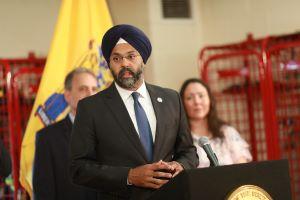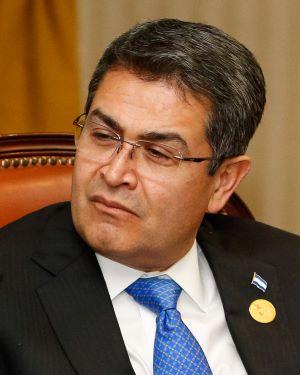Canada's Liberals have unveiled a sweeping criminal justice reform bill, but should they have just decriminalized drugs instead?
A New Jersey appeals court clears the way for dealing with pending medical marijuana license applications, and there's lots of action in the states this week.
A sticky-fingered Michigan detective finally faces justice, a Minnesota narcotics officer gets nailed for driving doped up, and more.
A Minnesota marijuana legalization bill moves, Wisconsin's governor calls for legal marijuana, the South Dakota House quashes telehealth for medical marijuana patients, and more.
Medical marijuana is receiving attention at various state houses, a trio of US senators warn the Philippine government on imprisoned drug war critic Sen. Leila De Lima, the Iowa Senate looks resolutely backwards, and more.
New Jersey finally gets pot legalization done, Virginia lawmakers are trying to do the same, a Massachusetts drug decriminalization bill is filed, and more.
Republican legislators continue to try to wreak havoc with voter-approved marijuana initiatives, Judge Merrick Garland speaks out on marijuana and sentencing policy at his confirmation hearing, and more.
A North Dakota marijuana legalization bill passes the House, Massachusetts drug decriminalization bills get filed, Nebraska medical marijuana advocates demand action from the legislature, and more.
A bipartisan marijuana legalization bill gets filed in Pennsylvania, a medical marijuana bill wins approval in the Alabama Senate, and more.
On February 16, Canada's governing Liberal Party finally moved to enact long-promised reforms to criminal justice by introducing a sweeping new bill that would make arrests for drug possession only one option for police, end all mandatory minimum sentences for drug offenses, end some other mandatory minimums, and open the way for conditional (probationary) sentences for a variety of offenses. But is it enough?

Canadian parliament building, Ottawa (Creative Commons)
The government's move comes as Prime Minister Justin Trudeau faces mounting pressure for reform on two fronts. First, Canada is facing an unprecedented drug overdose crisis, with the province of British Columbia especially hard-hit. Last year, the provincial Coroners Service reported, BC saw a whopping
1,716 drug overdose deaths, up a startling 74 percent over 2019. The province has always been on the cutting edge of drug reform in Canada, and spurred by the crisis,
BC formally asked the federal government in early February for an exemption to the country's drug laws to allow it to decriminalize the possession of personal use amounts of drugs. That request is still being considered by Ottawa.
But the pressure for drug decriminalization isn't just coming from British Columbia, it's coming from inside the criminal justice system. In July 2020, the Canadian Association of Chiefs of Police called for drug decriminalization, recommending the "current enforcement-based approach for possession be replaced with a health-care approach that diverts people from the criminal justice system." The following month, the federal prosecution service issued a directive permitting prosecution of drug cases only in the most serious cases.
And public opinion supports decriminalization. An Angus Reid poll released after the government announced the new bill found that seven out of 10 Canadians felt the country's opioid crisis had worsened in 2020, and 59 percent supported the decriminalization of all illegal drugs.
Second, just as last summer's massive protests in the United States channeled and amplified long-standing demands for racial and social justice here, so they echoed north of the border. Canada has its own not-so-noble history of racism and discrimination, and the number of Black and Indigenous people swept up in the country's criminal justice system demonstrates that the legacy of the past continues to this day.
Indigenous people make up 5% of the Canadian population but accounted for 25% of all federal prisoners in 2019. Similarly, Black Canadians accounted for about 3% of the population but more than 7% of prisoners that year. As the Justice Ministry noted in a 2017 report, after Conservatives passed tough anti-crime measures early this century, Black and Indigenous were disproportionately targeted for mandatory minimum sentencing in the decade ending in 2017. And as the Office of the Correctional Investigator reported, non-white inmates are more likely to sent to maximum security prisons, have forced used against them, and be denied parole.
As the government rolled out the bill, C-22, "An Act to amend the Criminal Code and the Controlled Drugs and Substances Act," Justice Minister David Lametti made clear that not just public health but also racial justice was on its mind.
Trudeau had asked him to "address systemic inequities in the criminal justice system," he told a press conference. "We are turning the page on a failed Conservative criminal justice policy," he added. "It was an approach that did not make our communities safer. It did not deter criminals. It did not make the justice system more effective or more fair. Its singular accomplishment has been to incarcerate too many Indigenous people, too many Black people and too many marginalized Canadians."
The bill envisions reforms in policing, prosecuting, and sentencing drug offenders and sets out statements of principle for dealing with drug offenses, including "problematic drug use should be addressed primarily as a health and social issue," state actors should recognize human rights and harm reduction imperatives, and criminal sanctions are stigmatizing and not consistent with public health practice.
Under these principles, when encountering people using or possessing drugs, police would be granted the discretion to "consider whether it would be preferable... to take no further action, or warn the individual, or, with the consent of the individual, to refer the individual to a program or to an agency or other service provider in the community that may assist the individual."
Similarly, the bill mandates the prosecutors open drug possession cases only when a warning, referral, or alternate measures are "not appropriate, and a prosecution in appropriate in the circumstances." And it gives judges much broader discretion to order probationary sentences instead of confinement.
C-22 looks as if it were designed to cut off inputs to the Canadian prison system at every level of the system. Liberal MP Nathaniel Erskine-Smith, who has represented Toronto's Beaches-East York riding (district) since 2015 and is a longtime proponent of full drug decriminalization, says that is exactly what it is supposed to do.
He filed private member's bills this session for decriminalization (C-235) and for an evidence-based diversion model (C-236) to reduce drug arrests and prosecutions. It is that latter bill that the government has now largely adopted as C-22.
"I favor drug decriminalization because the war on drugs is an absolute failure that harms the people we want to help," he told the Chronicle. "Our opioid crisis has taken more than 16,000 lives since 2016, and there is systemic racism in the criminal justice system, including around drug charges."
"My goal was to call for full decriminalization, with a second bill to show the government if they weren't inclined to favor decriminalization, here's an alternative that would get us closer to the goal and would be more politically feasible. This bill seriously restricts the discretion of police and prosecutors to proceed, according to a set of principles that will ensure a stronger focus on human rights and harm reduction," he said. "It doesn't go as far as I want it to go, but it is unquestionably a step forward. It will be virtually impossible for the state to move forward with drug possession charges and prosecutions."
Donald Macpherson, executive director of the Canadian Drug Policy Coalition and author of Vancouver's groundbreaking Four Pillars drug strategy in the 1990s, has a more jaundiced view of both the Liberals and C-22.
"The things that are in this bill are all things the Liberals promised when they were elected in 2015, and if they had done this then it would have been seen as a good move, getting rid of egregious stuff the Harper government had implemented," he told the Chronicle. "But now, the discussion has moved so far that even police chiefs are calling for decriminalization. It's too little, too late."
Even the limited support he gave the bill was filled with caveats.
"Overall, though, it is a good thing, it is incremental progress, getting rid of the mandatory minimums is probably the most powerful aspect in terms of criminal law," McPherson conceded. "But the bill was supposed to deal with the disproportionate impact of drug law enforcement on people of color, and it won't do it. There will be more probationary sentences and more alternatives to imprisonment, but arrests and prosecutions will be 'at the discretion of' and Black and Indigenous people will now be caught up in kinder, gentler diversion programs."
Still, passage of C-22 would be a step in the right direction, Macpherson said.
"It is preparing the ground for the next step, full decriminalization, which I think is now inevitable. The harms of criminalization in Canada are now so evident to everyone that the question now is not whether to but how to," he said. "We saw this with cannabis -- at a certain point, the change in the discourse was palpable. We're now at that point with drug decriminalization."
Long-time Vancouver drug user activist Ann Livingston, cofounder of the pioneering Vancouver Area Network of Drug Users (VANDU) and currently executive project coordinator for the BC-Yukon Association of Drug War Survivors, had an even more jaundiced view than Macpherson, scoffing at more police discretion and expanded probationary sentences.
"I'm glad to see the mandatory minimums gone, but the Liberals want more police, and we say don't do us any more favors," she told the Chronicle. "And the police have always had discretion to not make drug arrests; they just never exercise it. And probation -- many of the people in jail are there for probation violations, even administrative ones, like missing appointments."
For Livingston, the cutting edge is now no longer criminal justice reforms or even decriminalization but creating a safe supply of currently illegal drugs. Limited opioid maintenance programs, including heroin, are available in the city, but they aren't enough, she said.
"Here in British Columbia, we had 900 COVID deaths last year and 1,700 overdose deaths. What we need is a safe drug supply," she argued. "We have to have clear demands and what we are demanding is a pure, safe supply of heroin, cocaine, and crystal meth. This is a crisis; this is the time to do this drug law stuff right. And to get serious. The feds tell us they place no barriers on heroin prescribing, but then they fight about who is going to pay for it."
If Justin Trudeau and the Liberals think passing C-22 is going to quiet the clamor for more fundamental change in Canadian drug policies, they should probably think again.
back to top
A New Jersey appeals court clears the way for dealing with pending medical marijuana license applications, and there's lots of action in the states this week.
New JerseyNew Jersey Medical Marijuana Licensing to Resume After Appellate Court Ruling. The state's appellate court ruled last Thursday to uphold the denial of seven medical marijuana licenses, clearing the way for the state to begin dealing with nearly 150 license applications that have piled up while the case was being contested.
North Dakota
North Dakota House Approves Medical Marijuana Edibles. The House has approved a measure, House Bill 1391, that would allow medical marijuana patients to use edibles. The bill would limit edibles to 10 milligrams of THC and allow patients to possess edibles with up to 500 milligrams.
Oklahoma
Oklahoma House Approves Expanding Non-Resident Medical Marijuana Patient Licenses. The House voted last Thursday to approve House Bill 2022, which would extend the length of medical marijuana licenses granted to out-of-state residents. The bill would lengthen the licenses' period of validity from 30 days to two years. The bill also would open up licenses to resident of all 50 states, not just those with existing medical marijuana. The bill must still be approved by the Senate.
South Dakota
South Dakota House Votes to Deny Telehealth for Medical Marijuana. The House voted 38-30 last Wednesday to defeat House Bill 1147, which would have allowed medical marijuana patients to use telehealth to consult with practitioners in order to obtain recommendations. One Republican opponent called the idea "premature," while another called it "not ready for prime time." South Dakota okayed medical marijuana with 69% of the vote in November.
South Dakota Medical Marijuana Supporters Float Compromise to Forestall GOP Effort to Delay Implementation. Supporters of the state's voter-approved medical marijuana law are seeking to scale back Republican efforts to delay the implementation of the medical marijuana program. Lawmakers are considering House Bill 1100, which would form an interim committee to essentially rewrite the voter-approved law. The proposal moves back the deadline for implementing much of the measure to next January during the 2022 legislative session.
Virginia
Virginia General Assembly Approves Sales of Buds for Medical Marijuana Patients. A bill that would allow medical marijuana patients to buy flowers, House Bill 221, has passed the General Assembly. Currently, only highly processed oils, tinctures and edibles are allowed to be sold. The bill now goes to Gov. Ralph Northam (D).
back to top
A sticky-fingered Michigan detective finally faces justice, a Minnesota narcotics officer gets nailed for driving doped up, and more. Let's get to it:
In Hazel Park, Michigan,
a former Hazel Park police detective was arrested last Wednesday for allegedly embezzling more than $68,000 in seized drug money. Sean Boucher, 45, is accused of filching the funds between 2013 and 2017. He was suspended from the department in 2017 and resigned shortly thereafter. He is now finally being charged with conducting a criminal enterprise, embezzlement between $50,000 and $100,000, and five counts of embezzlement of more than $50 as a public official.
In Pelham, Georgia, a state prison guard was arrested last Thursday after coworkers detected a strong odor of marijuana as she attempted to enter the facility. Officer Kimbrya Almond then consented to a search, which revealed marijuana, rolling papers, pajamas, and a package of gummi bears with an odor of alcohol. She was then arrested by the Mitchell County Sheriff's Office.
In Lyons, New York, a Wayne County Jail guard was arrested last Thursday for allegedly peddling drugs to prisoners. Guard Seth Welch, 26, went down after an internal investigation at the jail, and now faces charges of first-degree promoting prison contraband and second-degree receiving reward for official misconduct, as well as misdemeanor counts of second-degree promoting prison contraband, official misconduct, and fourth-degree criminal sale of marijuana.
In Farmington, Missouri, a former Desloges police officer was arrested last Thursday on multiple drug charges. George Bradley "Brad" Judge Jr., 49, had been the subject of in investigation by a state drug task force and the FBI and resigned from the force after his home was raided in October. During the raid, police found more than 30 grams of methamphetamine, as well as heroin, hydrocodone, oxycodone, methadone, morphine, alprazolam, diazepam, clonazepam, lorazepam, tramadol, chlordiazepoxide, and zolpidem. Some pills were in prescription bottles with other people's names on them. A total of 14 counts of possession of a controlled substance and one count of second-degree trafficking drugs were included in the charging documents.
In Fergus Falls, Minnesota, an Ottertail County police narcotics investigator was arrested Monday after he got caught driving his squad car while under the influence of fentanyl. Sheriff's Deputy Kelly Blackman, 43, was on the job when he engaged in a pursuit with a fugitive, who eventually crashed into another car, killing an elderly couple. Blackman refused to submit a voluntary blood sample, but one was eventually taken, and it came back positive for fentanyl. He now faces one count of fourth-degree DWI and one count of public officer misconduct. And some cases he was involved in are now being looked at anew after an investigation showed he did not log some seized drug paraphernalia into evidence.
back to top
A Minnesota marijuana legalization bill moves, Wisconsin's governor calls for legal marijuana, the South Dakota House quashes telehealth for medical marijuana patients, and more.

(Creative Commons)
Minnesota Marijuana Legalization Bill Wins First Committee Vote. The House Commerce Finance and Policy Committee voted 10-7 Wednesday to approve a marijuana legalization bill, House File 600. The bill advanced on a partisan vote, with all Republicans opposed. Republicans control the state Senate, making the bill's prospects cloudy.
New Jersey Marijuana Legalization Standoff. Efforts to advance marijuana legalization implementation legislation remained stymied Thursday after a Senate Judiciary Committee vote on a "cleanup" bill was cancelled for the second day in a row. Legislators and Gov. Phil Murphy (D) remain at loggerheads over how to handle underage marijuana possession. Now, Murphy will likely have to decide whether to approve two pending bills or veto them, which would contradict his campaign promise to legalize marijuana, as well as contradicting the will of the voters, who approved it in a referendum in November. "The governor has two bills on his desk that he has articulated problems with, and it doesn't appear that the Legislature is going to solve those problems," said Bill Caruso, an attorney and founding member of New Jersey United for Marijuana Reform. The governor's deadline to act is noon Friday, although that could be pushed back to Monday.
Wisconsin Governor's Budget Plan Calls for Marijuana Legalization. Gov. Tony Evers (D) on Tuesday released a budget plan that includes legalizing both medical and recreational marijuana. The move comes despite strong resistance in the Republican-controlled state legislature. "The Governor believes it is time to join other states, including two of our neighbors, who have legalized recreational marijuana," an explanatory document from his office said. The proposal would allow adults to possess up to two ounces and grow up to six plants at home.
Medical Marijuana
South Dakota House Votes to Deny Telehealth for Medical Marijuana. The House voted 38-30 on Wednesday to defeat House Bill 1147, which would have allowed medical marijuana patients to use telehealth to consult with practitioners in order to obtain recommendations. One Republican opponent called the idea "premature," while another called it "not ready for prime time." South Dakota okayed medical marijuana with 69% of the vote in November.
Psychedelics
California Psychedelic Decriminalization Bill Filed. State Sen. Scott Weiner (D-San Francisco) filed Senate Bill 519, which would decriminalize the use and possession of psychedelic drugs in the state. "People should not be going to jail for possessing or using drugs," Wiener said. "It's a health issue, not a criminal issue, and I hope that we get all the way there." The bill would also expunge criminal records for people convicted of psychedelic possession offenses and create a task force to address regulatory issues.
Asset Forfeiture
South Dakota Bill Would Limit Asset Forfeiture in Drug Cases. The Senate Judiciary Committee voted Wednesday to approve Senate Bill 164, which would bar asset forfeiture in drug cases where the amount of the drug in question was no more than a personal use amount. The bill would originally have banned asset forfeiture without a criminal conviction but was amended in committee to strip out that section. Under the bill, it would take at least half a pound of marijuana to trigger asset forfeiture. The bill now heads for a Senate floor vote.
Harm Reduction
Arizona Senate Committee Approves Legalizing Drug Testing Strips. The Senate Health and Human Services Committee has approved Senate Bill 1486, which would legalize the use of test strips that can detect the presence of fentanyl, an extremely potent opioid which accounts for a majority overdose deaths in the US, mostly by people who didn't know they were taking it. The test strips are currently considered illegal drug paraphernalia. The bill now heads for a Senate floor vote.
back to top
Medical marijuana is receiving attention at various state houses, a trio of US senators warn the Philippine government on imprisoned drug war critic Sen. Leila De Lima, the Iowa Senate looks resolutely backwards, and more.

Medical marijuana is on people's minds in various state legislatures right now. (Creative Commons)
North Dakota House Approves Medical Marijuana Edibles. The House has approved a measure, House Bill 1391, that would allow medical marijuana patients to use edibles. The bill would limit edibles to 10 milligrams of THC and allow patients to possess edibles with up to 500 milligrams.
New Jersey Medical Marijuana Licensing to Resume After Appellate Court Ruling. The state's appellate court ruled Thursday to uphold the denial of seven medical marijuana licenses, clearing the way for the state to begin dealing with nearly 150 license applications that have piled up while the case was being contested.
Virginia General Assembly Approves Sales of Buds for Medical Marijuana Patients. A bill that would allow medical marijuana patients to buy flowers, House Bill 221, has passed the General Assembly. Currently, only highly processed oils, tinctures and edibles are allowed to be sold. The bill now goes to Gov. Ralph Northam (D).
Oklahoma House Approves Expanding Non-Resident Medical Marijuana Patient Licenses. The House voted on Thursday to approve House Bill 2022, which would extend the length of medical marijuana licenses granted to out-of-state residents. The bill would lengthen the licenses' period of validity from 30 days to two years. The bill also would open up licenses to resident of all 50 states, not just those with existing medical marijuana. The bill must still be approved by the Senate.
Drug Paraphernalia
Iowa Senate Approves Bill to Crack Down on Meth Pipes. The Senate on Wednesday unanimously approved Senate File 363, which aims to crack down on businesses selling glass pipes for smoking meth by requiring them to pay a $1,500 licensing fee and charging a 40% surcharge tax on each pipe sold. The bill carries civil penalties for selling without a license and makes using the devices as drug paraphernalia a serious misdemeanor. The bill now goes to the House.
Drug Testing
Iowa Senate Approves Bill to Make Using Synthetic Urine to Defeat a Drug Test a Crime. The Senate voted on Wednesday to approve House File 283, which would make it a criminal offense for an employee to use synthetic urine to "defraud" a workplace drug test. A first offense would be a misdemeanor punishable by up to a year in jail. The bill now goes to the House.
Foreign Policy
US Senators Urge Full Exoneration and Release of Philippines Drug War Critic Senator Leila De Lima. On Thursday, Senators Edward J. Markey (D-MA) top Democrat on the East Asia and Pacific Subcommittee, Dick Durbin (D-IL), and Patrick Leahy (D-VT), released a statement regarding the acquittal of Senator Leila de Lima in one of three bogus charges filed against her by the Government of the Philippines. Senator de Lima has been unjustly detained for four years next week on politically-motivated charges, widely condemned by human rights organizations and governments around the world as an illegitimate response meant to punish her for criticizing the policies of President Rodrigo Duterte. "While we are pleased that one of the three illegitimate charges against Senator De Lima has been dropped, it is clearly not enough." said the Senators. "The Duterte administration has wrongfully detained Senator De Lima for four years under false charges because she is willing to speak out and stand up to the egregious abuses of the government. President Duterte has tried to silence his critics and the independent press through false and politically motivated charges, but his disdain for human rights, free speech, and democracy is on clear display to the world. We will continue to hold the Duterte government responsible for its abuses until Senator De Lima is released, all of the fabricated charges against her and other prisoners of conscience are dismissed, and the victims of President Duterte's campaign of abuse against the Filipino people have obtained justice."
International
Norwegian Government Proposes Drug Depenalization. Norway's center-right government proposed Friday a dramatic restructuring of its drug laws to focus on treatment rather than jail or fines for people found in possession of small quantities of drugs. "Decades of criminal punishment has not worked," said Liberal Party leader and Education Minister Guri Melby. "We will no longer stand by and watch people being stigmatised and called criminals when they are in fact ill." Drugs would remain illegal, but possession of small quantities would no longer be punished. Instead people would face mandatory drug counseling, and a fine for refusing to participate. The move comes as the government faces a rising challenge in the September parliamentary elections from the Center Party, which has criticized the plans as leading to more drug use, not less.
back to top
New Jersey finally gets marijuana legalization done, Virginia lawmakers are trying to do the same, a Massachusetts drug decrim bill is filed, and more.

The Nevada legislature is considering legislation that would limit but not ban raids with no-knock warrants. (Creative Commons)
New Jersey Makes It Official; Governor Signs Marijuana Decriminalization, Legalization Bills. Governor Phil Murphy (D) on Monday signed into law a pair of bills implementing voter-approved marijuana legalization (A21) and decriminalizing marijuana possession (A1897). He also signed into law a bill setting penalties for underage use, S3454, an issue that had held up legalization for more than two months after the legislature passed the first two bills.
Virginia Legislators Meet in Conference Committee to Reconcile Marijuana Legalization Bills. House and Senate negotiators are meeting this week to try to reconcile marijuana legalization bills passed by the respective chambers, HB 2312 an SB 1406. They need to thrash out differences over local authority, licensing rules, and timing to reach a consensus.
Drug Policy
Massachusetts Drug Decriminalization Bill Filed. State Reps. Liz Miranda (D) and Mike Connolly (D) have filed HD 3439, which would remove all criminal penalties for personal amount drug possession and replace them with a maximum fine of $50. People caught with drugs could avoid the fine by attending a "needs screening to identify health and other service needs, including but not limited to services that may address any problematic substance use and mental health conditions, lack of employment, housing, or food, and any need for civil legal services." A bill introduced in the Senate by Sen. Julian Cyr (D), SD 2248, is virtually identical.
Psychedelics
Massachusetts Bill to Study Psychedelic Legalization Filed. State Rep. Mike Connolly (D) has filed HD 3829, which would create an interagency task force to "study the public health and social justice implications of legalizing the possession, consumption, transportation, and distribution of naturally cultivated entheogenic plants and fungi." The task force would be charged with developing recommendations on how to legalize natural psychedelics "in a manner that maximizes equitable access and sustainable manufacture of these plants."
Law Enforcement
Nevada Bill to Restrict No-Knock Warrants Gets Hearing. The Senate Judiciary Committee held a hearing last week on Senate Bill 50, which would restrict but not entirely ban no-knock arrest warrants. The bill would ban no-knock warrants for misdemeanors, property crimes or simple drug possession. In other cases, law enforcement would have to show a risk to public safety by not using a no-knock warrant, explain why just knocking on the door isn't appropriate, and certify that a no-knock warrant is the last resort. A proposed amendment from the ACLU of Nevada and defense attorneys and public defenders would exclude evidence gathered in no-knock raids if police don't follow the guidelines for no-knock warrants. But that amendment threatens to derail law enforcement support for the bill.
Sentencing
Virginia Legislature Ponders Ending Mandatory Minimums. The House has passed a bill that ends mandatory minimum sentencing for drug offenses, HB 2331. Meanwhile, the Senate has passed another bill, SB 1443, which ends all mandatory minimum sentencing under state law. A conference committee of lawmakers from the Senate and House will try to hash out the significant differences between the bills, though it remains to be seen whether a compromise can be struck.
back to top
Republcan legislators continue to try to wreak havoc with voter-approved marijuana initiatives, Judge Merrick Garland speaks out on marijuana and sentencing policy at his confirmation hearing, and more.

Attorney General nominee Judge Merrick Garland, here chatting with Sen. Chuck Schumer. (Creative Commons)
Biden Attorney General Nominee Sets Gentler Line on Marijuana, Cites Discriminatory Enforcement. Judge Merrick Garland, President Biden's pick as attorney general, said Monday that prosecuting people complying with state marijuana laws is not "a useful use of limited resources" and that there is "a question of prioritization about resources and discretion" around the issue. Garland was responding to a question from Senator Cory Booker (D-NJ) during his confirmation hearing in the Senate Judiciary Committee. He also said during the hearing that the enforcement of marijuana prohibition is a "perfect example" of how the criminal justice system is racially biased and imposes disproportionate impacts on communities of color.
Montana GOP Bill Would Delay Voter-Approved Marijuana Legalization. Saying the voters' decision to legalize marijuana with a quick timeline "doesn't make any sense," State Representative Bill Mercer (R) has filed a bill that would push back the October 1 deadline until sometime in 2023. The bill is set to be heard this week in the House Business and Labor Committee.
Medicial Marijuana
South Dakota Medical Marijuana Supporters Float Compromise to Forestall GOP Effort to Delay Implementation. Supporters of the state's voter-approved medical marijuana law are seeking to scale back Republican efforts to delay the implementation of the medical marijuana program. Lawmakers are considering House Bill 1100, which would form an interim committee to essentially rewrite the voter-approved law. The proposal moves back the deadline for implementing much of the measure to next January during the 2022 legislative session.
Heroin and Prescription Opioids
Illinois Bill Would Give Protection to Overdose Victims. Representative Janet Yang Rohr (D-Napierville) has filed House Bill 3445, which would mandate that people seeking assistance for a drug overdose would not be criminally charged or prosecuted if they make a good faith effort to seek drug treatment. It also includes language protecting parolees from having their status revoked in case of an overdose. The bill would expand a Good Samaritan law passed in 2012 to include the person who is actually overdosing.
Law Enforcement
El Chapo's Wife Busted on Drug Trafficking Charges at DC Airport. Emma Coronel Aispuro, the wife of imprisoned Mexican drug trafficking kingpin Joaquin "El Chapo" Guzman was arrested Monday night after flying into Dulles International Airport. She faces federal charges of conspiring to help distribute cocaine, methamphetamine, heroin and marijuana in the US. She is accused of helping El Chapo continue to run his enterprise while behind bars. She is a joint US and Mexican citizen.
Sentencing
Biden Attorney General Nominee Endorses Ending Mandatory Minimums. Judge Merrick Garland, President Biden's nominee for attorney general, said Monday that he agrees with a Biden administration policy of ending the use of mandatory minimum sentences. His comments came in response to a question from Senator Jon Ossoff (D-GA) and can be heard at the 28-minute mark of the linked video.
back to top
A North Dakota marijuana legalization bill passes the House, Nebraska medical marijuana advocates demand action from the legislature, and more.

New Jersey Attorney General Gurbir Grewal has ordered an end to most marijuana arrests and prosecutions in the state. (CC)
Minnesota Marijuana Legalization Bill Wins Second House Committee Vote. The House Labor, Industry, Veterans and Military Affairs Finance and Policy Committee voted to approve a marijuana legalization bill, House File 600, on a 7-5 vote. That's the second committee to approve the bill in the past week. It now heads for a third vote in the House Workforce and Business Development Finance and Policy Committee.
New Jersey Attorney General Orders End to Marijuana Possession, Small-Time Distribution Arrests. In the wake of Governor Phil Murphy's (D) signing into law three bills that set up a legal marijuana marketplace, Attorney General Gurbir Grewal on Monday ordered police to immediately stop arresting people for possessing less than six ounces of weed or distributing up to an ounce. He also ordered prosecutors to immediately dismiss charges for any pending marijuana offense that is no longer illegal under state law. Although Grewal had issued guidance urging an end to marijuana arrests and prosecutions after voters approved a legalization referendum in November, police still made 6,000 pot arrests since then. Now, no more.
North Dakota House Approves Marijuana Legalization Bill. The House voted Tuesday to approve a marijuana legalization bill, HB 1420. Some lawmakers said they voted to approve the bill because they feared if they didn't, voters would do it themselves through the initiative process. The bill now heads to the Senate. It would allow adults to buy up to 20 grams every two weeks, with purchases tracked. There is no provision to allow home cultivation.
Medical Marijuana
Nebraska Medical Marijuana Advocates Rally to Urge Support for Bill. Nebraska Families for Medical Cannabis held a rally at the statehouse Tuesday to urge legislators to pass a medical marijuana bill, LB 474. It is sponsored by Senator Anna Wishart (D-Lincoln), who was one of the leaders of last year's initiative that qualified for the ballot only to be disqualified by the state Supreme Court.
South Carolina Poll Has Overwhelming Support for Medical Marijuana. As legislators ponder whether to approve a medical marijuana bill this year, a new poll finds overwhelming support for it. The survey released by the advocacy groups SC Compassionate Care Alliance and Compassionate SC had support at 72%, with just 15% opposed.
International
Mexican Soldiers Discover 10-Acre Coca Crop in Guerrero. The Mexican military announced Monday it had discovered and destroyed a 10-acre coca crop growing in the southwestern state Guerrero. They also found a cocaine manufacturing lab nearby. It's the first time a coca crop has been found in the state, which is known for marijuana and opium poppy cultivation, but it's not the first time coca has been discovered being grown in Mexico. The army uncovered a coca field in the southern state of Chiapas in 2014.
back to top
A bipartisan marijuana legalization bill gets filed in Pennsylvania, a medical marijuana bill wins approval in the Alabama Senate, and more.

Honduran President Juan Orlando Hernandez, accused by US prosecutors of involvement in drug trafficking. (Creative Commons)
New Mexico Marijuana Legalization Bill Heads for House Floor Vote. A marijuana legalization bill, HB 12, is now headed for a House floor vote after passing the House Taxation and Revenue Committee on an 8-4 vote. The bill has been amended to remove some specific tax revenue designations for medical marijuana patients and for communities disparately affected by drug prohibition. The amended bill also removes fines for juveniles, adjusts tax rates on marijuana sales, strengthens employers' rights to have a drug-free environment, and delays the start date for a legal marijuana market.
Pennsylvania Marijuana Legalization Bill Filed with Bipartisan Support. State Senators Dan Laughlin (R-Erie) and Sharif Street (D-Philadelphia) filed a marijuana legalization bill Wednesday. In a statement Senator Laughlin wrote, "While my colleague Senator Street and I come from different political parties, we see a bipartisan way forward on marijuana legalization that is premised on safety and social equity, said Senator Laughlin. As the marijuana movement reaches Pennsylvania, legalization must be done the right way. This bill ensures a legalized market in the Commonwealth is implemented safely and responsibly, with a thoughtful approach that provides opportunities to medical and recreational consumers, farmers, and small, medium and minority-owned businesses." The bill is not yet available on the legislative web site.
Medical Marijuana
Alabama Senate Approves Medical Marijuana Bill. The state Senate approved a medical marijuana bill, SB 46, Wednesday and sent it to the House for approval there. The bill would allow patients with specified medical conditions to receive marijuana with a physician's approval.
Missouri Bill Would Protect Patients' Privacy, Gun Rights. Rep. Nick Schroer (R-O'Fallon) has filed HB 501, which would make disclosing patient information to the federal government a criminal offense. "I just want to make sure that we're protecting our Second Amendment rights and law abiding citizens who may have medical marijuana, but then they also have a weapon in their house to defend their family when necessary, Schroer said during his testimony on the bill in committee Wednesday. While the measure won support on the committee, no vote was taken.
Psychedelics
Missouri Bill Would Add Some Psychedelics to State's Right to Try Law. Rep. Michael Davis (R-Kansas City) has filed a bill, HB 1176 that would allow state residents with debilitating, life-threatening or terminal illnesses to use drugs such as MDMA, psilocybin, LSD, and DMT. The bill would build on a 2014 state right to try law that lets patients with terminal illnesses have access to investigational drugs not yet approved by the Food and Drug Administration.
Foreign Policy
Honduran President Warns US That Allegations He Is Involved with Drug Trafficking Could Hurt Anti-Drug Ties with Washington. Honduran President Juan Orlando Hernandez said Wednesday that US prosecutors' allegations that he is involved with drug trafficking could affect his country's cooperation with Washington to fight drug trafficking. In a federal court filing February 4, prosecutors in New York City accused Hernandez of using Honduran law enforcement and military officials to protect traffickers, and that he took a million-dollar bribe from former Mexican Sinaloa Cartel head Joaquin "El Chapo" Guzman.
back to top








